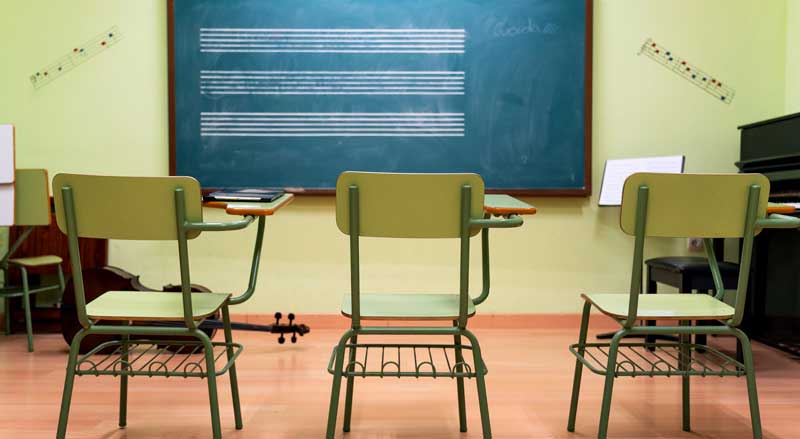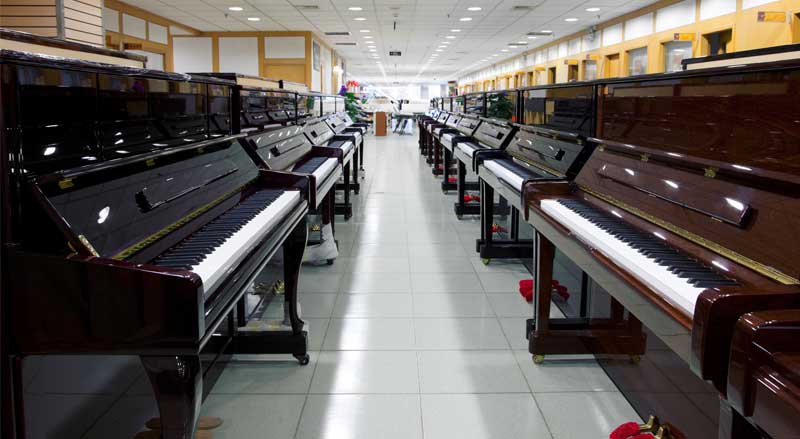
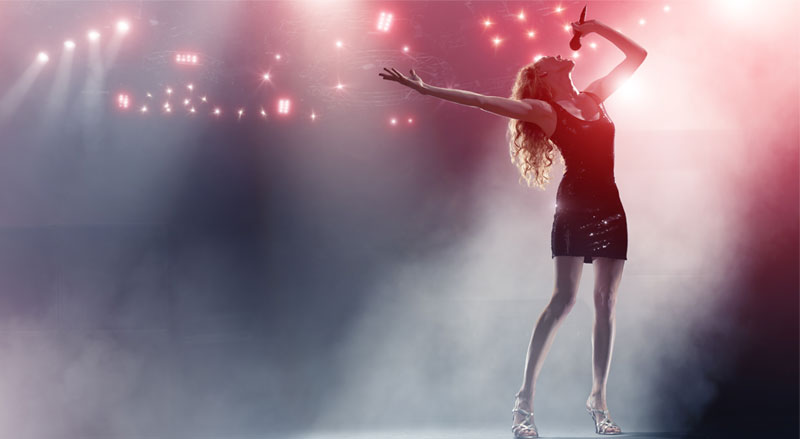
Anyone can get stage fright. Young kids at voice recitals and seasoned performers on concert stages can suffer from this upsetting problem.
Stage fright, also known as performance anxiety, can be particularly devastating if it stands in the way of pursuing your performance dreams.
But don’t give up—there’s good news! You can start to conquer stage fright with these tips for nervous performers.
Stage fright feels like different things to different people, but everyone probably agrees that stage fright feels awful.
Some common symptoms of stage fright include:
Performance anxiety can take hold right as you’re about to step on stage, or weeks before an expected performance.
Stage fright is like a bully—it won’t likely just get out of your way and let you be, but if you stand up to it, stage fright will probably retreat.
Read how music lessons can help with anxiety.

The National Institute of Mental Health reports that about 73% of the population suffers from stage fright.
If you’re one of these people, you’ll be encouraged to know that some of our most cherished performers have experienced stage fright.
They include:
Clearly, stage fright is not a measure of lesser ability or talent.
The following are different things you can do before performance day to get your anxiety and stage fright under control.
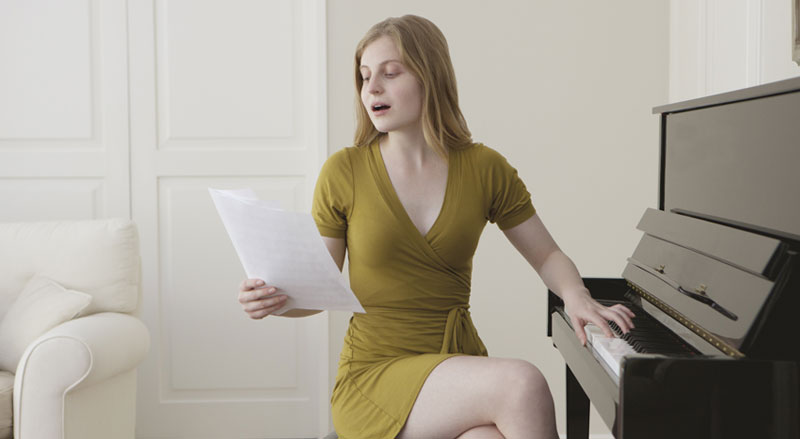
Practice your vocal selection or musical piece so you know it well—almost to where you feel you can perform it in your sleep. Nothing helps calm performance nerves like knowing you are well prepared.
As you learn a new task, such as singing a song or playing an instrument, new neural pathways form in your brain. These muscle memory pathways develop and eventually enhance motor planning and execution.
Muscle memory improves the efficiency of your voice by training tendons and ligaments to produce correct placement of the larynx. Respiration muscles become used to properly supporting your diaphragm for breath control.
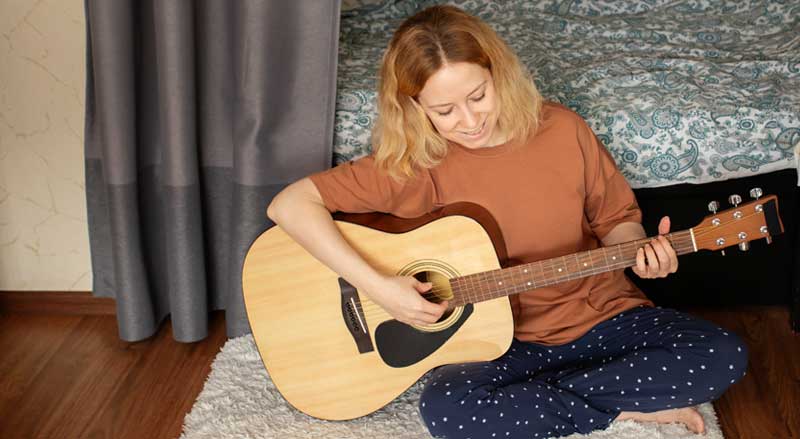
Muscle memory also helps your brain and muscles work together to better play a musical instrument.
The more you practice, the more your muscle memory will develop. When you’re anxious performing onstage, your muscle memory will be there to help you perform at your best.
Practice a relaxation technique daily to reduce anxiety. Once you perfect your ability to use a relaxation technique, you can always use it when you are about to encounter a stressful situation, such as getting onstage to perform.
Relaxation techniques can be as simple as taking several deep breaths or closing your eyes and slowly counting backwards from 50 to 0, visualizing each number as you go.
Visualization can be an important tool in preventing stage fright. Close your eyes and visualize your perfect performance. You approach the stage calmly and sing or play every note with ease.
Visualization is a powerful tool. It uses the brain’s neural patterns to boost self-confidence, improve focus, reduce stress, and develop a positive mindset.
Regular physical exercise helps to manage anxiety and keep stress from building.
Now that the big day has arrived, draw from your familiarity with these stress reducing techniques.
Practice your warm-up routine as you’re waiting to perform.
If you’re going to be performing on an instrument, run through some scales or finger exercises. Singers can do tongue trills or other vocal exercises.
These familiar routines will remind you that you are well prepared, and help you feel at ease, in your element, and more confident.
On performance day, you’ll have all the natural energy you need! Ward off anxiety by limiting your coffee intake.
Focus on positive thoughts and try not to talk about how nervous you are. Continue with positive visualization and know that everything is going to go well. Walk around with a big smile on your face. When you smile, you actually feel happier. It activates specific pathways in your brain that trigger this good feeling. This works even if you don’t really want to smile!
When you are nervous and breathe faster, it can trigger your body’s fight-or-flight response. Focus on rhythmic breathing that is slower and deeper than normal to relax your nervous system. Let your breath out for twice as long as the breath you take in.
Feeling a bit too excited and overly energetic? Shake it out by moving your arms and legs. If you feel inspired, jump up and down. There’s no need to run a marathon. A bit of extra movement will release that extra energy.
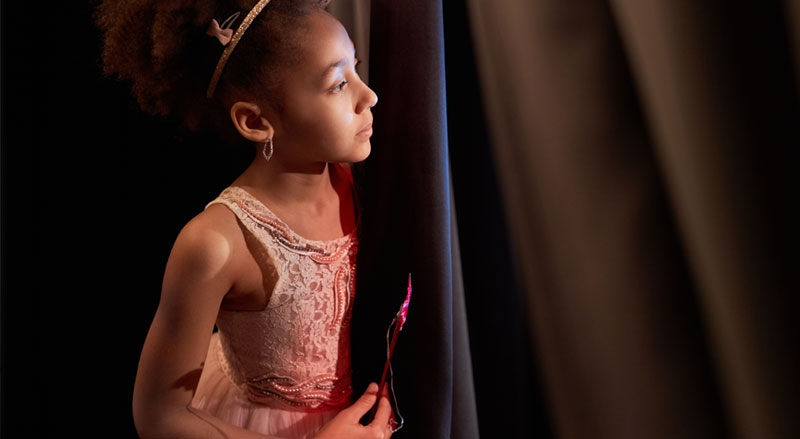
Stage fright is extremely common in young children, whether they are performing in a recital, speaking in the classroom, or playing a sport.
Here are things parents can do to help.
Here are ways to help motivate your child to practice their musical instrument.
Find out the 5 ingredients for successful piano lessons for young children.
Contact us at B Natural Pianos & Music School for voice and instrument lessons for all ages.

